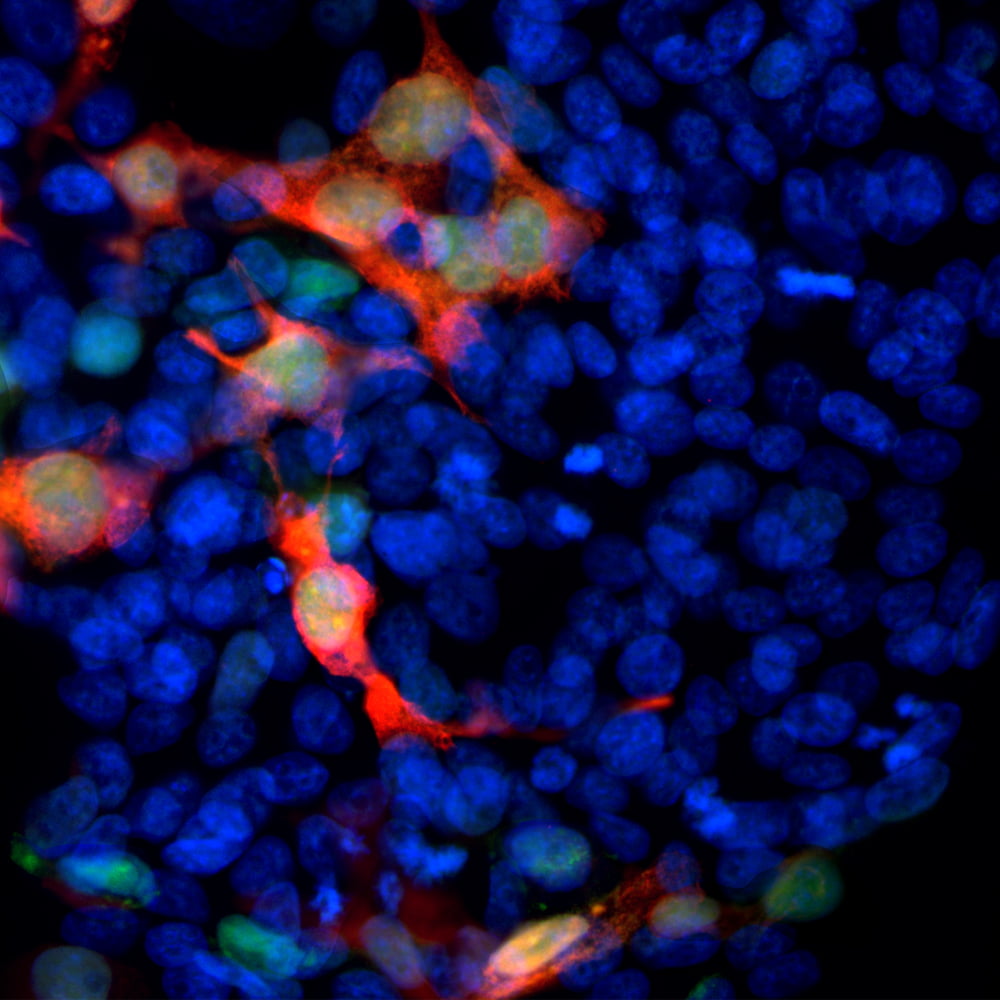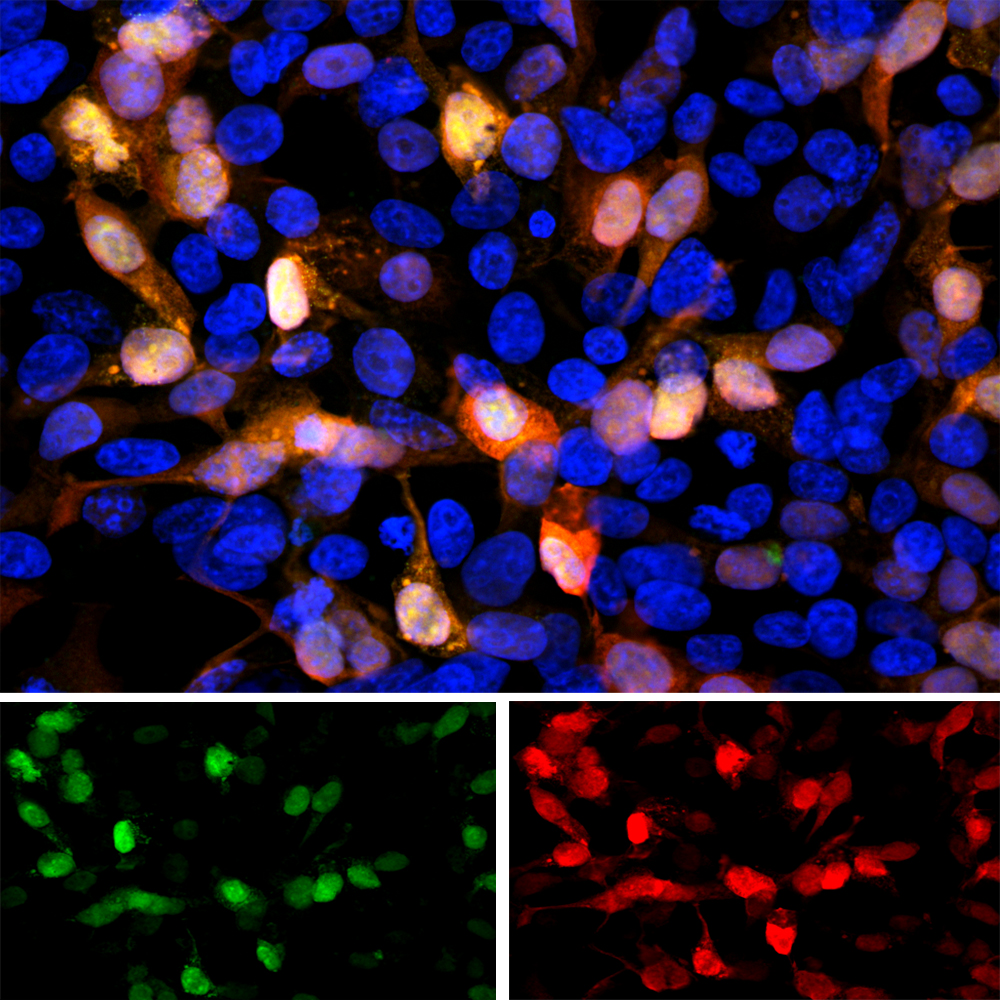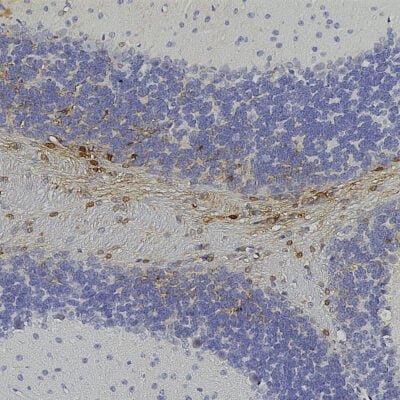Showing 1–10 of 46 results
Cell marker antibodies
Cell marker antibodies are highly specific antibodies that recognize and bind to proteins or other molecules that are uniquely expressed or enriched in specific cell types. These antibodies are crucial tools in cell biology and research as they allow scientists to identify, isolate, and study different cell populations in complex biological samples. By using cell marker antibodies in techniques like flow cytometry, immunohistochemistry, and immunofluorescence, researchers can distinguish between various cell types based on their unique surface markers or intracellular proteins. This information is vital for characterizing cell populations, understanding cellular heterogeneity, and studying cell differentiation and development. Additionally, cell marker antibodies are essential in biomedical research, aiding in the diagnosis and classification of diseases and identifying biomarkers associated with specific cell types or pathological conditions. As advances in antibody development continue, the use of cell marker antibodies is expanding, providing valuable insights into cellular biology and contributing to the development of personalized medicine and targeted therapies.

ICC/IF with antibody [3128] : Immunofluorescent analysis of transfected HEK293 cells with a GFP-construct in green stained with mouse mAb to GFP, 3128, dilution 1:1,000 in red. The blue is Hoechst staining of nuclear DNA. 3128 antibody reveals GFP protein expressed only in transfected cells, as a result cells are appeared in orange-golden color.

ICC/IF with antibody [1290] : Immunofluorescent analysis of transfected HEK293 cells with a GFP construct, in green, and stained with rabbit pAb to GFP, 1290, dilution 1:2,000 in red. The blue is Hoechst staining of nuclear DNA. The 1290 antibody reveals GFP protein expressed only in transfected cells, and as a result these cells appear orange-yellow in color.

IHC with antibody [1379] : Chromogenic immunostaining of formalin fixed paraffin embedded GFP transduced mouse brain with goat pAb to GFP, 1379, dilution 1:5,000, detected with DAB (brown) using the Vector Elite 8718C-HRP detection and reagents with citra buffer retrieval. Hematoxylin (blue) was used as the counterstain. Antibody 1379 specifically detected GFP positive cells in the cerebellum as expected for this model.






